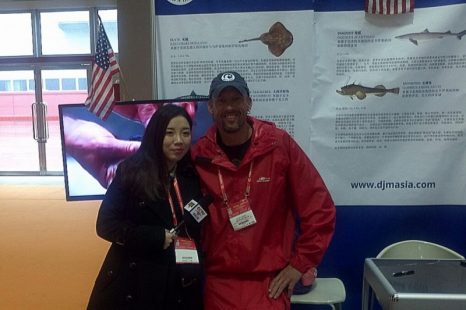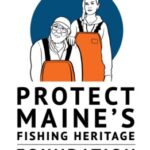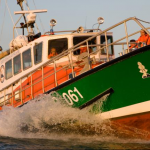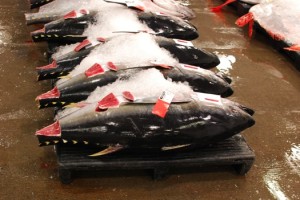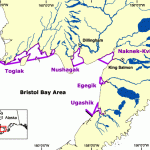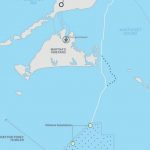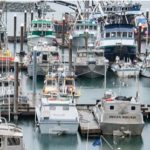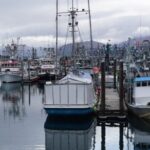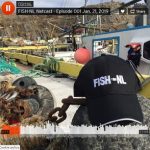Tag Archives: Doug Feeney
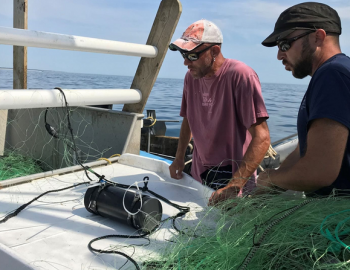
The costs of depredation: Underwater Cameras Tackle Tough Questions for Fishery
Scientists at the Woods Hole Oceanographic Institution (WHOI) and the Center for Coastal Studies (CCS) are working with local fishermen on Cape Cod to understand exactly what happens when seals and other marine mammals invade a fishing net to forage.,,, The costs of depredation—when marine animals prey on fish caught in nets—can be high on both fronts. On the economic side, it can reduce the amount of sell-able fish and lead to torn fishing nets. “A five-inch opening in the net can quickly become a 15-inch hole when a seal gets caught and tries to free itself,” said Doug Feeney, a commercial fisherman based in Chatham, Massachusetts. >click to read< 12:30
New England’s Wild Fish Oil – Skate liver oil could boost fishing industry
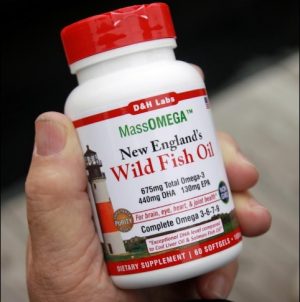 Two engineers showed up at the Chatham Fish Pier a few winters ago and struck up a conversation with some fishermen who were unloading their catch. Steve Daly and Bill Hannabach asked for some of the fish because they were doing research for a new business venture. The fishermen obliged and the men took home totes with a variety of species. “You have two rubes from out of town. They could have easily said get out of here,” said Daly with a grin. “They didn’t know what we were doing. We could have been making fertilizer, we could have been making pottery.” This week Daly and Hannabach were once again at a Cape Cod dock, this time at Saquatucket Harbor in Harwich, with some of the same fishermen they had met when they first began experimenting with everything from monkfish to dogfish. But now they had with them the results of their foray into the fishing industry, their first product, MassOMEGA: New England’s Wild Fish Oil, set to be launched today and almost totally made from winter skate brought in by local fishermen. continue reading the story here 17:42
Two engineers showed up at the Chatham Fish Pier a few winters ago and struck up a conversation with some fishermen who were unloading their catch. Steve Daly and Bill Hannabach asked for some of the fish because they were doing research for a new business venture. The fishermen obliged and the men took home totes with a variety of species. “You have two rubes from out of town. They could have easily said get out of here,” said Daly with a grin. “They didn’t know what we were doing. We could have been making fertilizer, we could have been making pottery.” This week Daly and Hannabach were once again at a Cape Cod dock, this time at Saquatucket Harbor in Harwich, with some of the same fishermen they had met when they first began experimenting with everything from monkfish to dogfish. But now they had with them the results of their foray into the fishing industry, their first product, MassOMEGA: New England’s Wild Fish Oil, set to be launched today and almost totally made from winter skate brought in by local fishermen. continue reading the story here 17:42
Cod Is Dead—Is Dogfish the Answer?
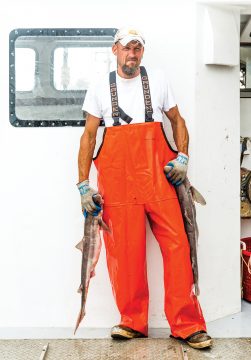 On a wind-tossed autumn morning off the Cape Cod coast, the aft deck of Doug Feeney’s 36-foot fishing boat, the Noah, is buried beneath a squirming, slimy, shin-deep layer of sharks. The Noah’s hauler growls under the weight of the 300-hook long line emerging from the froth-tipped Atlantic. The reek of gasoline mingles with salt. A procession of small gray sharks, each pierced neatly through the jaw by a steel hook, materializes from the depths. Feeney, a lean fisherman whose goatee and hoop earrings lend him a vaguely piratical mien, yanks the sharks from the line with the steady rhythm of an assembly-line worker. A drained cup of coffee perches on the dashboard; James Taylor warbles on the radio. “Twenty-five years ago we’d catch 10,000 pounds of these things every day,” Feeney shouts over the roar of the engines and “Fire and Rain.” “We’d just throw ’em back over the side.” Like many Chatham fishermen, Feeney is a jack-of-all-trades. He gillnets monkfish in early spring, he trolls for bluefin tuna in late fall. But no species occupies more of his energy than the spiny dogfish, the dachshund-size shark now piling up on the Noah’s deck. Read the story here 09:27
On a wind-tossed autumn morning off the Cape Cod coast, the aft deck of Doug Feeney’s 36-foot fishing boat, the Noah, is buried beneath a squirming, slimy, shin-deep layer of sharks. The Noah’s hauler growls under the weight of the 300-hook long line emerging from the froth-tipped Atlantic. The reek of gasoline mingles with salt. A procession of small gray sharks, each pierced neatly through the jaw by a steel hook, materializes from the depths. Feeney, a lean fisherman whose goatee and hoop earrings lend him a vaguely piratical mien, yanks the sharks from the line with the steady rhythm of an assembly-line worker. A drained cup of coffee perches on the dashboard; James Taylor warbles on the radio. “Twenty-five years ago we’d catch 10,000 pounds of these things every day,” Feeney shouts over the roar of the engines and “Fire and Rain.” “We’d just throw ’em back over the side.” Like many Chatham fishermen, Feeney is a jack-of-all-trades. He gillnets monkfish in early spring, he trolls for bluefin tuna in late fall. But no species occupies more of his energy than the spiny dogfish, the dachshund-size shark now piling up on the Noah’s deck. Read the story here 09:27






